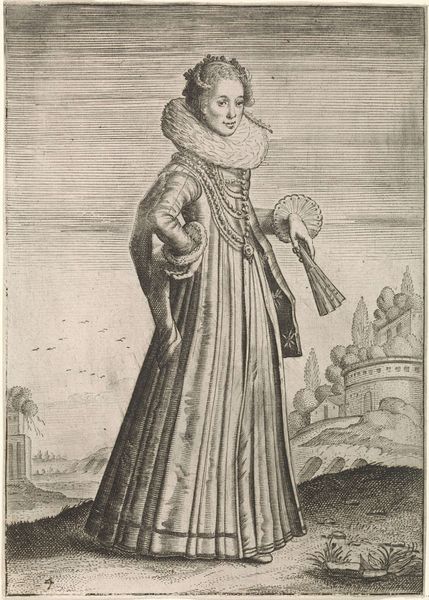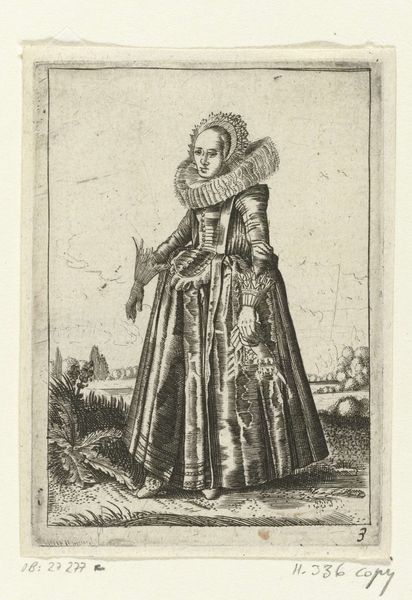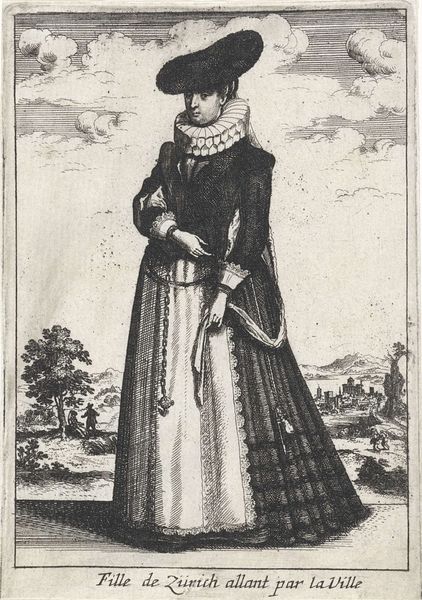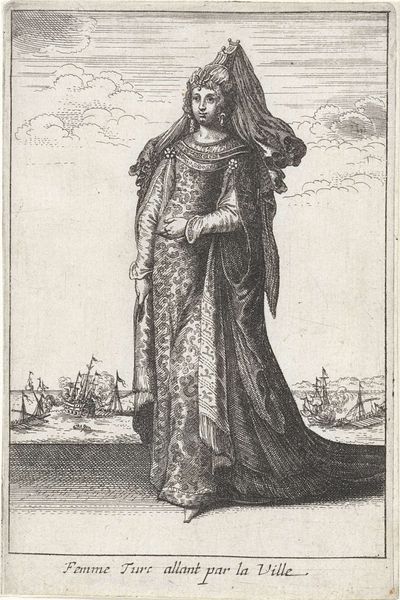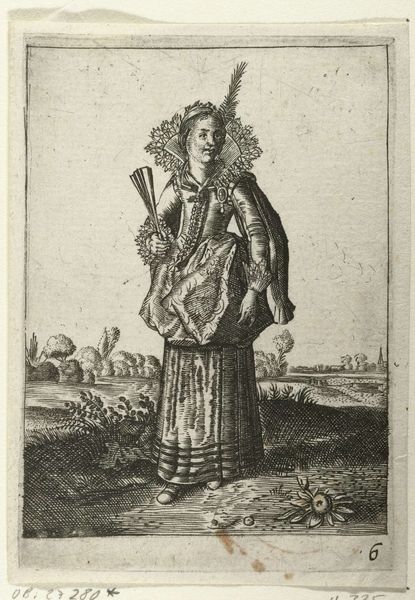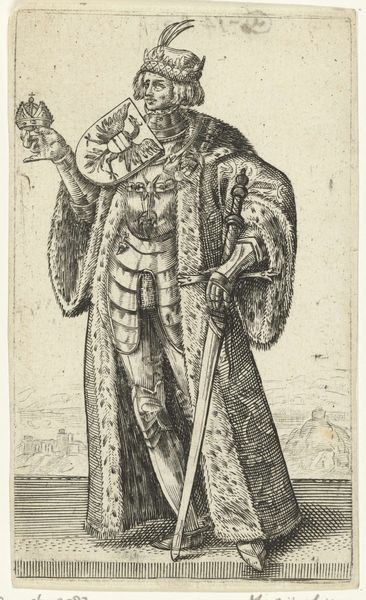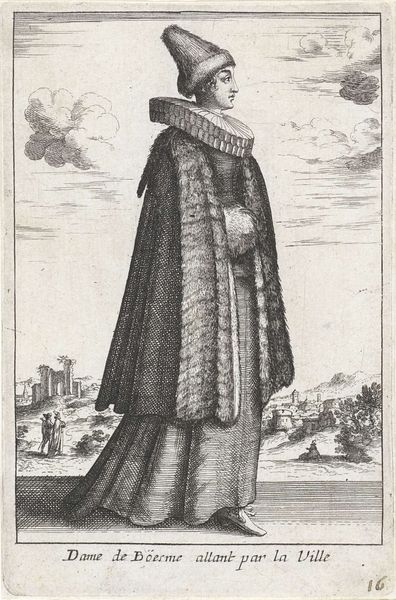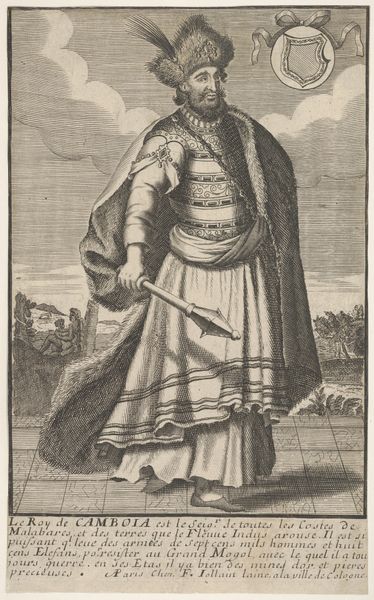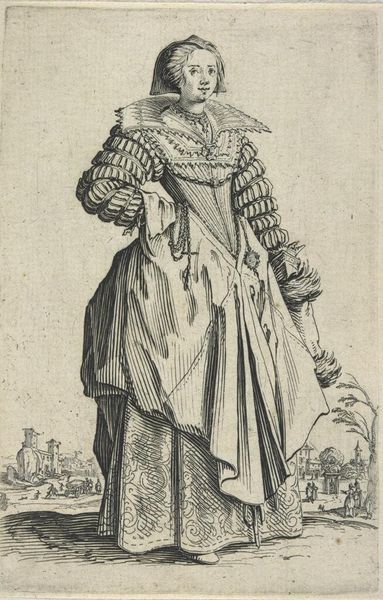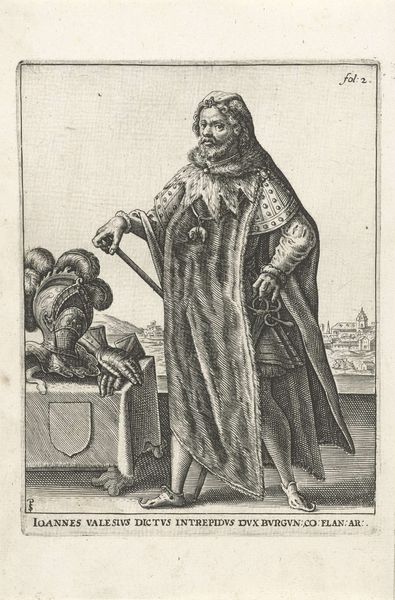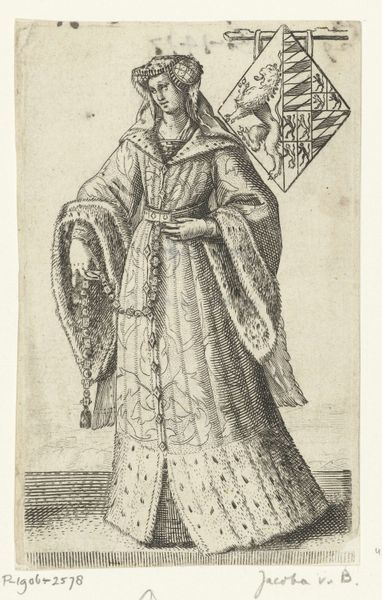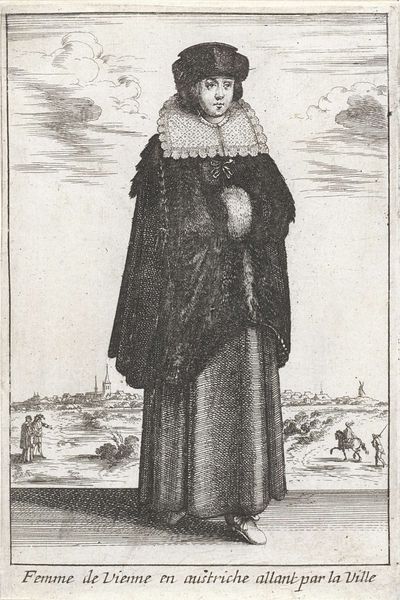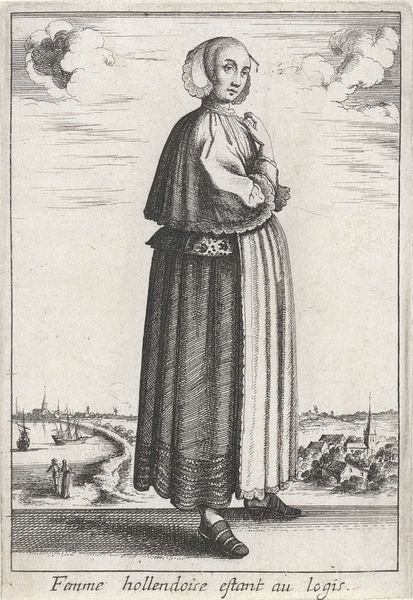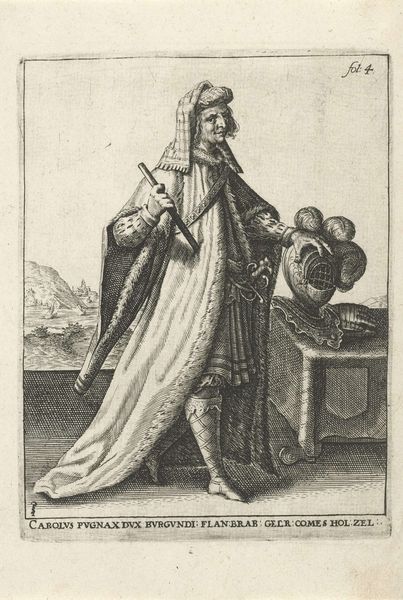
print, engraving
#
portrait
#
baroque
# print
#
pen illustration
#
figuration
#
dress
#
engraving
Dimensions: height 80 mm, width 58 mm
Copyright: Rijks Museum: Open Domain
Editor: Here we have an engraving entitled "Elegante dame met brede plooikraag", which translates to "Elegant lady with a wide pleated collar." It's from between 1619 and 1652, and is by an anonymous artist. The material detail in the dress and collar are so fine! What strikes you most about this piece? Curator: I'm immediately drawn to the production of this print and the socio-economic implications it suggests. Consider the labor involved in creating such a detailed engraving. Editor: It must have been quite intensive! Curator: Exactly! The meticulous detail, especially in the collar, wasn't just about aesthetics. These luxurious textiles and elaborate garments represent status and wealth. What materials were required? Who had access to them? Who produced them, and under what conditions? We must ask: Was this printed for a broad audience, perhaps spreading fashion trends and aspirations? Or was its circulation limited? Editor: So, you're saying it's not just about a pretty picture, but also about the labor and materials behind it? Curator: Precisely. The engraving medium itself – a print – speaks volumes. Prints allowed for wider dissemination of images and, importantly, ideas. It democratized art in some ways. Do you notice how the landscapes in the background add another layer to this status, by including imported materials, suggesting commerce and worldly connections? Editor: Yes, I do see how all of the objects communicate status! It definitely changes how I view the image. I’m more aware now of how the means of production influenced the artwork's significance. Curator: Indeed! Considering the labor, materials, and consumption surrounding "Elegante dame met brede plooikraag," offers insights beyond mere visual appreciation.
Comments
No comments
Be the first to comment and join the conversation on the ultimate creative platform.
